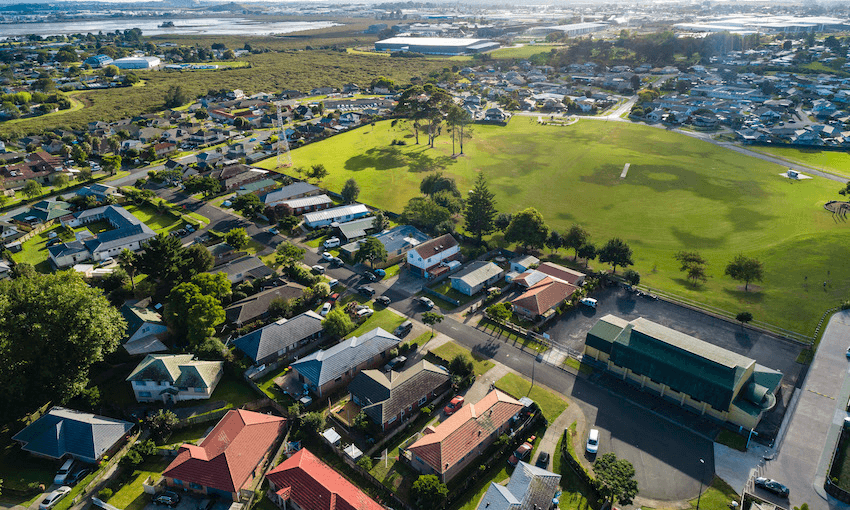Housing experts and community leaders are applauding the government for acting on housing affordability, but many are worried the raft of initiatives will do little to address the core issues.
Massive rent rises, house price spikes and overcrowding could be some of the unintended consequences of the government’s recently announced housing policies, according to a financial adviser to first-home buyers in South Auckland.
Andrew Lavulavu founded Home Ownership Pathway, a social enterprise primarily focused on helping Māori and Pacific families, three years ago, and since its launch it has supported thousands of families with their first home purchases.
“Increasing income caps and house price caps will definitely help, but primarily those looking for two-bedroom townhouses on higher incomes,” said Lavulavu. “But over the next month or two, I think this will add more fuel to the demand and we might see a sudden spike in prices.
“At the moment I’ve got about five pre-approved families up to 700k, but they’re struggling to find a place anywhere in Auckland that’s suitable, as they have three to four children and a two-bedroom townhouse just isn’t big enough.
“So [these announcements] could have a negative spinoff for our Pasifika and Māori families.”
Lavulavu expects landlords to increase rents and hold onto their properties for longer.
“The average rent in South Auckland is now around $600 a week, but this time next year it could be around $750-850 a week. So we might see issues like overcrowding and health-related issues rise, as families move in together to pool their incomes.”
Instead of the new measures, he would prefer the government scale up its KiwiBuild initiative, using its buying power to resell existing developments.
“Something that is working great is the ballot process, where people are buying a house off the government at a fixed price. So if the government could buy up homes and then sell them via a ballot to first-home buyers – that’s a possible solution.”
Can funding to councils accelerate building?
A key plank in Labour’s plan is its $3.8 billion Housing Acceleration Fund. The Spinoff understands this may be a contestable fund under which councils will pitch for funding on infrastructure projects that will have to meet criteria still to be determined by cabinet. Councils may also need to put in some of their own finances to get the projects started. The fund will ensure the roading and pipes around a development can be built sooner and it will also accelerate construction on Crown-owned land that’s vacant or underutilised.
According to Grant Hewison, a barrister specialising in local government law and a former Manukau City Council staffer, the fund is a “positive sign central government has realised that there is an infrastructure deficit at local government level,” but he believes the amount is well short of what will be needed.
“It sounds like a big number but it’s not,” he said.
“Auckland Transport spends $1 billion a year on roading. Watercare spends close to half a billion a year, and this is a fund that’s going to be spread around the country. It’s basically one year of normal infrastructure spending for local government, so it will make a difference, but not much of a difference.”
Hewison said the underlying issue is that local councils have not been able to keep up with New Zealand’s unprecedented population growth over the last 20 years.
“The problems inside local government are way more systemic, which this money can’t solve. Rates have been rising at the rate of inflation, which is way lower than the rates of growth, and so they haven’t been able to spend on infrastructure.”
One answer would be for the central government to share its GST revenue to create an ongoing infrastructure fund that’s “available in a sustainable and ongoing way,” said Hewison.
“We’re looking at a two to three-year time frame before we’re seeing this money delivered into pipes or holes in the ground. And how do they divvy it up? Where’s the greatest need? Is it Māngere or is it Tauranga? And how are they going to manage the politics of giving that out?”
Auckland councillor Angela Dalton, from the Manurewa-Papakura ward, said extra investment for infrastructure is welcome, even if the “how” and “what” remain unclear.
“The biggest challenge facing any council when it comes to supporting housing growth is the investment in infrastructure. If we can get roads and the ‘three waters’ pipes in place, the provision of housing will be realised more efficiently.”
The Manukau ward’s city councillor Fa’anana Efeso Collins said while these announcements are certainly no silver bullet for all of Auckland’s housing unaffordability issues, it’s vital pundits, property owners and investors put their self-interest to one side and offer constructive solutions.
“We need to get past ourselves and some of our outdated leanings to ensure we put a roof over the heads of all New Zealanders,” said Collins. “This constant bickering over what’s the perfect solution is hurting our political discourse.
“Housing unaffordability is an issue and at the end of the day there are first-home buyers at both ends of town who are locked out of the market, so we need to realise making housing more affordable helps us all.”

